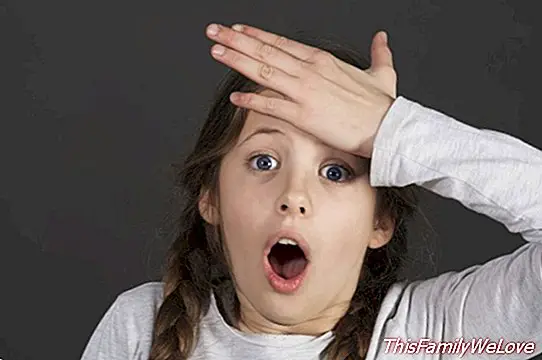Memory: 8 exercises to stimulate the ability to remember

The memory it is one of the most prodigious capacities of the human being. Babies are born with ability to remember and it is maturing over the years. But it will not be until they start talking and to name what they see and live, when their memory takes a giant step.
From then on, being able to express yourself and classify your experiences with words will help them remember better. It is not strange, therefore, that the first memories we have of our childhood date back to approximately three years old, when we began to master speech.
Our son will develop naturally and gradually his memory, like all children of his age. However, stimulating him in an appropriate way will serve as a great preparation for the future. At these ages, the ability to remember it has a lot to do with the development of attention and observation, especially through the sense of sight and hearing, the two most important entry ways to stimulate the child.
Benefits of stimulating memory to increase the ability to remember
Most memory stimulation exercises in this stage seek to make the child aware of what he sees and hears and then use that knowledge when he wants it, when he needs it or when we ask for it. The possibilities of the human brain are very large and its use at these ages will help children to have a very valuable tool in the coming years, especially during their school years.
AMAZING! A two-kilogram human brain contains more than 10 times the capacity of US national archives. It seems obvious that no human being in history has approached the use of that capacity ... but neither is it about wasting the possibilities. The brain grows with its use and, therefore, will act better the more data are entered into it. You can also better use the additional information and more cross-references you can make with that information.
Also, when you improve a brain function, all brain functions improve to the same degree. So stimulate memory can help develop in our son a great power intellective.
Exercises to stimulate memory before 5 years
1. Association cards. After three years, children are able to use association cards. With them, a visual memory is developed, because they have to remember where the two identical cards are. First they are shown all face up and then placed face down. We can make these cards ourselves. We can start with few and easy to identify elements such as colors.
2. Videos and videos. As we already know, kids love watching cartoon movies over and over again. It is a good practice and we have to procure it, encouraging the learning of the dialogues, the songs, the way of speaking of the characters ... We must make this game more active, asking them what the Lion King said, asking let us sing "Colors in the wind", etc.
3. What was there? With a child at this age, we can already perform this exercise that develops visual memory. We will place several objects on a table. After a while for you to observe them, we will remove them. The child will have to remember what they were and put them on the table. A greater degree of difficulty will be to give an order to the objects that the child should remember as well.
4. Visiting. We can take advantage of any visit we make with our son to turn it into a memory exercise. We can challenge or play with him to see who remembers later more elements of a room, the chairs that were there. Another variant is not to warn our child about the game and, when returning from visit, ask him what he remembers in general, or if he remembers certain information.
5. A drawing. After watching a picture film, or having read a story with many illustrations, ask her to memorize a drawing about what she has just seen. In this way, you will have to exercise your visual memory. If it costs a little, we can show him an original drawing for a certain period of time and then take it back for him to try, even if he's wrong.
6. Poems, tongue twisters and languages. To stimulate auditory memory are very interesting rhymes that contain numerous poems, tongue twisters, riddles, etc. They help our children's minds retain many elements. We can hold contests for poetry, tongue twisters, etc. Maybe it's a good idea to get a good children's book of rhymes. In addition, the teaching of languages at an early age, when children are in the right sensitive period, is another very interesting activity for the development of memory.Without any effort they learn words in another language that they will remember throughout their lives. Our knowledge of English, French, etc., will help our child learn new words.
7. Children's songs. Young children love songs, especially if they have a cassette that is theirs and they can put when they want. We must encourage them to memorize the songs and sing them several times. We can organize a song festival at home, if we learn them too.
8. Children's stories. It is very beneficial for children to tell them stories. As children, they love that we repeat them over and over again. When they know it, we can make a mistake on a certain day so they can rectify it. We can also ask what will happen next, etc.
Beatriz Bengoechea




